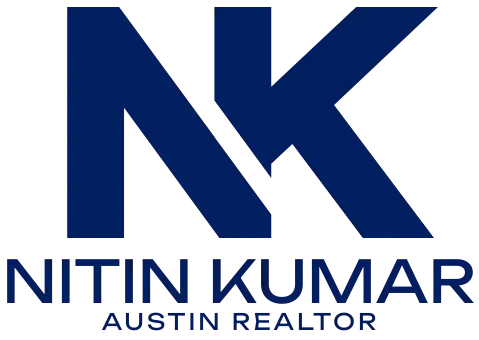Closing on a house can be both exciting and stressful. It’s the final step before moving into your new home, but there are many important tasks to complete first. This article will provide a list of things to do before closing on a house.
Discover how you can make this process of closing on a home smooth and worry-free. Without any further ado, let us take a look at the list of things to do before closing on a house:
What To Do Before Closing on a Property: Pre-Closing Preparation Checklist for Buyers
Make sure everything is set prior to closing on your new home. Check that all paperwork and approvals are in order.
Clear all contingencies
Similar to how there are tons of formalities and checks one must perform before buying a home, there are important steps that need to be taken just before closing or finalizing the deal. Before closing on a house, it’s vital to clear all contingencies. Contingencies are conditions that must be met before the process of buying a house proceeds.
- Home Inspection: Ensure you get a thorough home inspection by certified home inspectors. Look for issues like leaks, mold, or structural damage.
- Appraisal: Confirm the market value of the house. The appraisal should match your offer price. Mortgage lenders will require this step to ensure they aren’t lending more than the home’s worth.
- Financing Approval: Obtain final mortgage approval from your mortgage lender. Submit any extra documents they request quickly.
- Title Search and Insurance: Check to ensure the title is free of liens or legal disputes. Consider getting title insurance for protection against future claims.
- Homeowner’s Insurance: Arrange for homeowner’s insurance coverage before closing day for thier dream home. Your insurer should send proof of insurance to your lender. if they do not receive one, make sure to ask your lender or remind them to get it.
- Final Walk-Through: Do a final walk-through 24 hours before closing day, i.e., go through a proper closing day checklist. This confirms that all agreed-upon repairs are done and the property is in good condition.
Clearing these contingencies avoids delays and ensures a smooth closing process in the case of your new home.
Obtain final mortgage approval

The underwriters need to bring approval for your final mortgage. They will review your credit score, income, and other details again. Make sure all financial documents are correct and updated.
Check for any changes in the loan estimate. These can happen due to new appraisals or other factors. Ensure you have a copy of the approval from your estate agent or mortgage brokers before you close on the house.
This step is crucial for securing your home loan and moving forward with confidence.
Review the closing disclosure
Another important part of the closing checklist or checklist to close is reviewing the closing disclosure at least three days before closing. This document shows all the details of your loan and expenses. Verify that funds align with what you saw in your Loan Estimate one week before closing.
Check for any unexpected changes in your interest rates, property taxes, or other type of fees, like closing fees. Make sure everything is correct to avoid surprises on the day of closing. Verify early to ensure smooth sailing.
Essential Documentation
Gather all needed papers before the closing day. Study your loan details closely to avoid surprises.
Compile necessary documents
Before closing on a house, you need to gather important documents. These papers ensure that the homebuying process goes smoothly.
Government-Issued ID:
- Bring your driver’s license or passport.
- The title company will need these for identification.
Seller Contract:
- Have a copy of the seller contract.
- This shows the terms you agreed on with the seller.
Loan Documents:
- Gather your loan approval and details.
- This includes any paperwork from your lender.
Down Payment Proof:
- Show proof of your down payment.
- A bank statement or check receipt works well here.
W-2 Forms:
- Collect your W-2 forms from the past two years.
- Lenders use these to verify your income.
Pay Stubs:
- Include recent pay stubs, typically from the last month.
- These help confirm current earnings.
Home Insurance Info:
- Provide details of your home insurance policy.
- Include contact information for your insurance agent.
Escrow Account Details:
- Have information about your escrow account ready.
- This is needed to handle property taxes and homeowners insurance.
Utility Bills Proof:
- Collect recent utility bills as proof of address change readiness.
Child Support Papers:
- If applicable, bring child support documentation required by lenders.
Identification and Payroll Information
- Prepare all necessary IDs and payroll statements for verification purposes
Review loan documents thoroughly

Review and sign loan documents (mortgage, closing disclosure). Pay close attention to details. Check the interest rate and loan application terms. Ensure your name is spelled correctly. Verify the property’s address. Look for any unexpected fees or costs.
Additional documents may be requested by the bank at this stage. Have them ready to avoid delays. If you have questions, get in touch with a reputed real estate agent or lender right away. This step ensures no surprises on closing day.
Final Property Review
Check the house one last time to ensure it meets your expectations. If you find any issues, address them before closing day.
Conduct a final walk-through
Conducting a final walk-through is crucial before closing on a house. It ensures the property is in the agreed condition.
- Check Agreed Repairs: Ensure all repairs agreed upon are complete. Look at plumbing, electrical systems, and fixtures.
- Inspect Property Conditions: Verify the home is in good shape. Check for any new damage or issues.
- Test Appliances: Make sure appliances included in the sale work well. Test ovens, washers, and refrigerators.
- Review All Rooms: Walk through each room in the house. Open closets and check basements and attics.
- Examine Exterior Areas: Look at the yard, garage, and any sheds or outbuildings. Check fences and gates too.
- Check Utilities: Confirm water, electricity, and gas are functional. Test outlets, light switches, and faucets.
- Evaluate Safety Features: Ensure smoke detectors work fine and see if fire extinguishers are present.
Order a last-minute inspection if necessary
Order a last-minute inspection if necessary. Buyers sometimes miss issues during the initial checks. An extra inspection can catch problems like leaks or pests before closing.
An inspection usually takes a few hours but is worth it. Ensure all repairs are done and the house is in good condition. This ensures you won’t face surprises after moving in.
Always verify any lender-ordered home appraisal too. Double-check for any discrepancies to avoid future headaches.
Financial Considerations
Double-check your funds and payment methods before closing. Make sure you understand the details of your escrow account.
Double-check funding and payment options
Make sure you have the money for your new home. Check all payment options before closing.
- Verify Funds: Ensure you have enough money for closing costs and the down payment.
- Cashier’s Check: Get a certified check from your bank for any remaining funds.
- Wire Transfer: Arrange a wire transfer with your bank to send the needed cash on the specified time.
- Fees and Costs: Go over all fees you’ll need to pay, including taxes and insurance premiums.
- Escrow Details: Understand how much money will go into escrow for things like property taxes.
- Document Proof: Bring proof of payment, such as receipts or confirmation emails, to the closing meeting.
- Payment Plan: Confirm that your mortgage plan suits your budget and needs.
Ensure you follow each step carefully to avoid delays in closing on your new home!
Understand your escrow details

Set up an escrow account for property taxes and homeowners insurance if required. This account holds funds to make these payments on your behalf. Your insurance company may need you to do this.
Purchase mandatory homeowners insurance before closing. The travelers indemnity company and other insurers offer good plans, so compare options. Ask your escrow agent any questions about the fund balance or tax levies. An informed homebuyer is a confident homeowner.
Day Before and Day of Closing
Another thing on the house closing checklist is to confirm the details and timing of your closing appointment. Gather all necessary papers and be ready for a lot of reading and signing.
Confirm the closing appointment
Contact the closing agent. Ask about any specific needs or requests for the day. Make sure your calendar is clear on closing day. This ensures you can attend without stress.
Check with insurance companies and your insurance agency to confirm coverage. Confirm details with your realtor.com account, if used. Be ready to finalize home ownership smoothly by having everything in order ahead of time.
Bring all required documentation
Bring a copy of the seller contract and your government-issued ID. Proof of homeowners insurance is crucial. Double-check you have all loan documents, including underwriting details.
Your checkbook might be necessary for last-minute payments or down-payment adjustments. Ensure you have everything to avoid delays during closing.
Be prepared for extensive reading and signing
IT is important to prepare for closing day properly. One of the main things to be prepared for is reviewing and signing. Be ready to review and sign many closing documents on closing day. These include proof of home insurance, a copy of the contract, and your ID. You need to read everything carefully.
Signing these papers is crucial for securing your home mortgage loan. Make sure all details match what you agreed upon. Take your time with this part as it affects the ownership deed and warranties for your new property.
Now, let’s make sure you have all the essential documentation needed for this day:
Conclusion
Closing on a house can feel like running a marathon. Each step is crucial for a smooth finish. Follow this checklist to avoid any last-minute hiccups. Stay organized, keep your documents handy, and double-check all details.
You’ll soon have the keys to your new home!
FAQs
1. What should I inspect before closing on a house?
Before closing, ensure homes are inspected for any issues. This includes checking the roof, plumbing, and electrical systems.
2. Why is it important to review finances before finalizing homebuying?
Reviewing your finances ensures you can afford loans and other costs like homeowner’s association fees or property taxes that may be levied.
3. Do I need to get the house insured before closing?
Yes, getting the house insured is crucial to protect your investment from potential risks once sales are finalized.
4. Should I check if there is a warranty on the home?
Absolutely! Checking for a warranty helps cover repairs or replacements that might arise after you’ve moved in.




